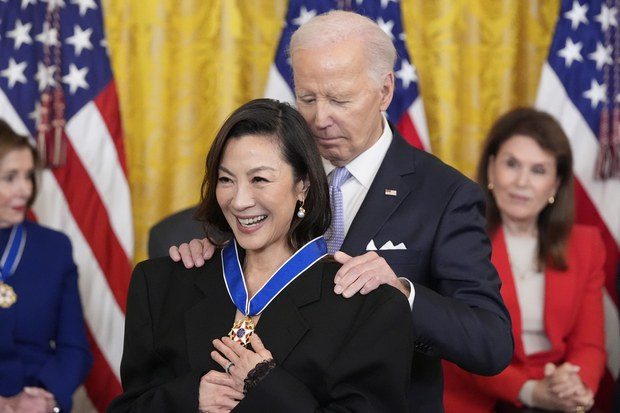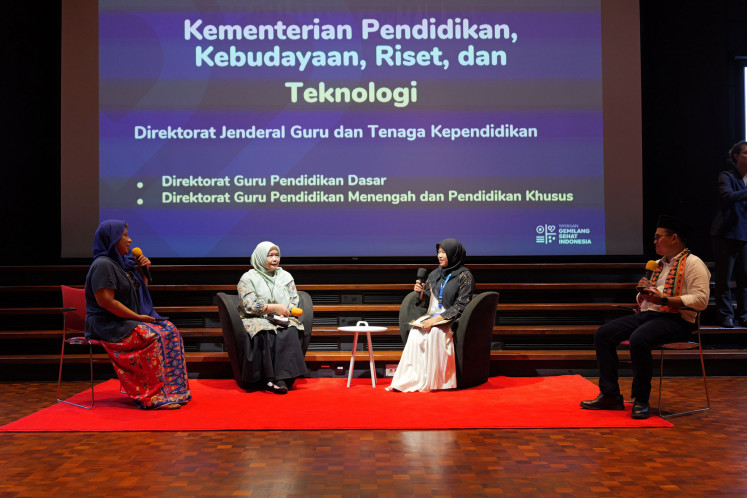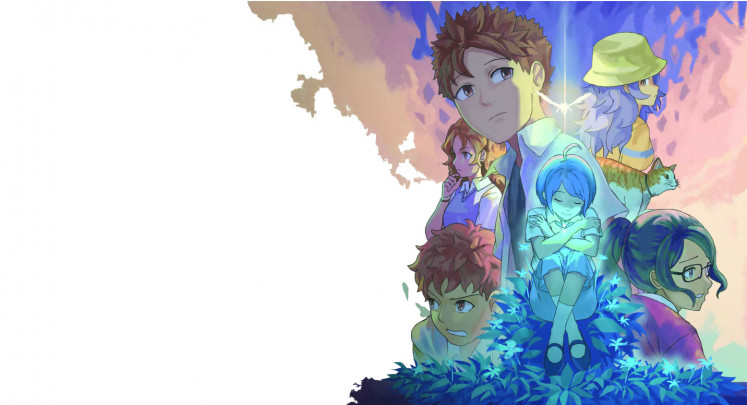Essay: Waiting to explode
Whether we are Chinese-Indonesians, LGBTs, radical Islamists, kafir (infidels) or Ahmadiyah, in xenophobic times like this, the most dangerous thing you can possess is an identity.
Change Size
 People walk under hundreds of lanterns at Satya Dharma Temple in Denpasar, Bali, in the early hours of Chinese New Year on Jan. 28. (JP/Zul Trio Anggono)
People walk under hundreds of lanterns at Satya Dharma Temple in Denpasar, Bali, in the early hours of Chinese New Year on Jan. 28. (JP/Zul Trio Anggono)
G
eographically, Indonesia is located in the Ring of Fire, a major area in the basin of the Pacific Ocean where a large number of earthquakes and eruptions occur, triggered by 452 volcanoes (more than 75 percent of the world’s active volcanoes). Indonesia itself has 127 volcanoes with about 5 million people living inside the danger zone.
Apparently, it’s not just Indonesian volcanoes that have a dormant potency for explosions: its people do, too.
My good ol’ book club Baca, Rasa, Dengar (Read, Sense, Listen) held a meeting in late March, at a time when sectarianism and bigotry surrounding the Jakarta gubernatorial election became almost too painful to bear. Not just for a triple minority like myself (Chinese, gay and non-Muslim), but also for my Muslim and non-Chinese friends who were present during the discussion.
In order to seek solace from the unbearable heat of hatred against Chinese and non-Muslims prevalent during the campaign period, we decided to use Politik memecah-belah, puisi menyatukan (politics divide, poetry unites) as a theme for the meeting, in which we discussed poetry.
A friend, Aqmarina Andira, recited a poem from F. Aziz Manna. A line stuck in my mind and it haunted me for weeks:
Tanah kami menyimpan bara api. Api tak kunjung padam dari kisah yang terpagar. Siap jebol kapan saja. Membakar di mana saja: Priok. Batam. Tuban. Mojokerto. Sampit. Aceh. Ambon. Lebih merah dari magma.
(Our land sustains embers. Unextinguished flames from muffled stories. Ready to combust at any time. To catch fire anywhere: Priok. Batam. Tuban. Mojokerto. Sampit. Aceh. Ambon. Redness fiercer than that of magma).
“[The poem] reminds us of unresolved violence-related wounds in our history,” Aqmarina said of the poem, which referred to the brutal and violent horizontal conflicts that have occurred across Indonesia through time.
Film director Edwin seemed to bring this issue to light through his 2008 film Babi Buta Ingin Terbang (Blind Pig Who Wants to Fly). Portraying the anxiety felt by Chinese-Indonesians as a result of the stigma they have to bear, the film is told in fragments of disparate events, effectively leaving the majority of audience members attending the screening on Feb. 27 in Kineforum with a sense of dejection and dread.
According to Edwin, the film itself seeks to portray the explosion of emotions that we can’t articulate through effective communication. He attributes our inability to articulate our emotions to the way Indonesians tend to suppress their emotions and thereby not develop the necessary skills to talk about difficult issues until molehills eventually turn into mountains.
Anthropologist Niels Mulder says this emotional suppression is rooted in our cultural value of placing social harmony above all. Meanwhile, historian Bernard Vlekke proposes the idea that Indonesians tend to avoid conflict because their unpleasant experience in clashing with the colonialists has turned the notion of conflict into something distasteful.
The irony is, the more you suppress conflict, the more malignant it becomes when it is time for the conflict to play itself out. Not just in terms of horizontal conflicts, but also in our personal realms. Let’s be honest here: we all have resentments against friends or family members but often decide to remain silent about it because we are too reticent to talk about our resentments openly.
On a socio-political level, our politicians and authority seem to be able to exploit this tendency too well to create horizontal conflicts and divert our attention away from the real issues.
According to historian Bonnie Triyana, our inability to deal with conflict in a constructive manner was exacerbated by the New Order regime, which prohibited its citizens from discussing issues pertaining to ethnicity, religion, race or intergroup (SARA) issues.
Therefore, we have never learned to manage diversity and conflict in a constructive manner. During the totalitarian regime, all conflicts were resolved by force. Our inability and lack of experience in dealing with diversity render us vulnerable to political manipulation through sectarianism and bigotry.
Anyone reading Benny G. Setiono’s 1,166-page Tionghoa dalam pusaran politik(The Chinese amid political turbulence, 2003) will be familiar with how we have been convenient scapegoats (tumbal politik) for the powers that be to legitimate their own corrupt power for hundreds of years.
People have stereotypes that the Chinese are wealthy. Jemma Purdey, in her 2006 book, Anti-Chinese violence in Indonesia, 1996-1999 has debunked that stigma. When conflicts occur, as they did in May 1998, the victims are small and helpless Chinese-Indonesian merchants who owned small shops and went to work every day to earn their living.
Joseph R. Stiglitz in his 2012 book The Price of Inequality explains how through the financial business, the powerful 1 percent of society continues to accumulate wealth and power for themselves.
When the fragile and speculative nature of derivatives and the finance industry disrupts the economy, as indicated by our latest crisis, which started in 2009, it effectively destroys the real economy, involving trade and commodities, which in fact are pillars of real economic growth.
A 2003 Kompas report titled “Keretaku tak berhenti lama” (My train does not stop for long) indicated that this method of wealth accumulation will mean that in a few years, no more than 3 percent of Indonesians will be counted in the socio-political circle of influence.
Therefore, 97 percent of us will lose resources.
And the wealthy will continue to be a small elite, untouchable privileged people. And our politicians will continue to create horizontal conflicts by blaming scapegoats for the inequality, thereby absolving themselves, erasing traces of their own fingerprints.
The question is: do we want to continue to be divided by bigotry and consumed by our hatred?
In the end, hatred will kill us all. Whether we are Chinese-Indonesians, LGBTs, radical Islamists, kafir (infidels) or Ahmadiyah, in xenophobic times like this, the most dangerous thing you can possess is an identity.









